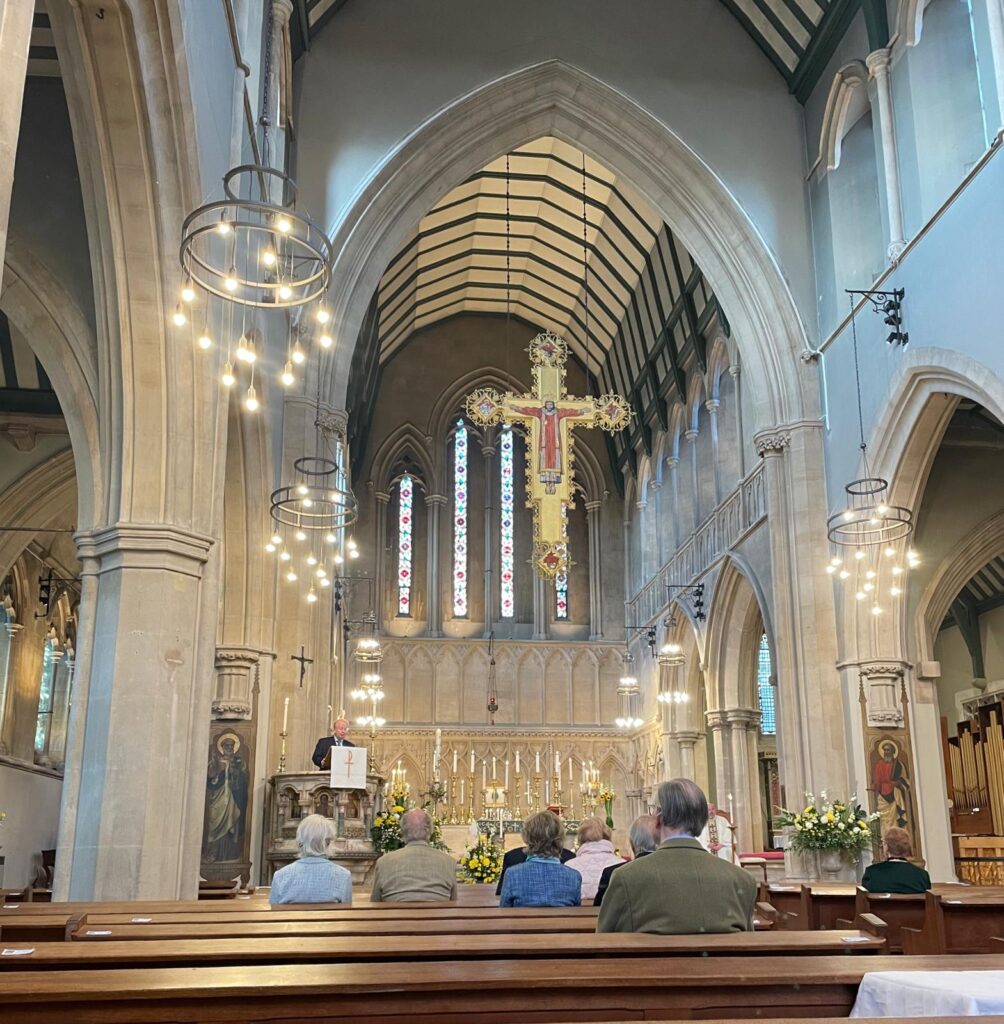The following homily was given on the 21 April 2022 at St Mary’s Catholic Church, Chelsea, by Fr Shaun Middleton. The Mass was for the St Thomas More Circle Benefactors and Supporters, who give generously towards making the work of the Catholic Union possible.

On the feast of St. Francis of Assisi, 4 October 2020, Pope Francis, published the third encyclical letter of his papacy, Fratelli Tutti.
As with his ecological encyclical Laudato Si, the title is an Italian quotation from the writings of the Poor Man from Assisi, translated as “brothers and sisters all.” The document takes the reader on a tour of Pope Francis’s social teaching.
In its eight chapters Fratelli Tutti demands that we embrace our common humanity, it looks at the things that separate us from each other and calls us to fraternity that can be achieved through dialogue, especially among peoples of faith.
Pope Francis considers politics a noble profession, but only if leaders practise it “out of a tender care for others” (194). Politicians have a unique opportunity: they can help individuals, but they also have the power to create the very conditions by which people can flourish, which has a much larger impact.
Francis notes that politics has fallen into disrepute because individualism and an unhealthy populism have corrupted it. What we need, says Francis, is “a better kind of politics, one truly at the service of the common good” (154).
The Pope asks us to consider the parable of the Good Samaritan, though a different reading of the parable is given than the one offered by a former Conservative Prime Minister!
This parable is the theological foundation of the entire encyclical. It reminds us how easy it is to avoid the suffering of others by looking the other way. National boundaries do not matter to the Samaritan, who comes from a nation deeply at odds with that of the Jewish victim. The discomfort of the badly wounded man does not disgust him or cause him to retreat into a “comfortable isolation” as it does the priest and the Levite (68). Neither does he pass judgment on the social position of the victim; he sees only a human being who needs help.
Francis challenges all people, and their leaders, to imitate the Samaritan. To do otherwise is to act as a secret ally of the robbers, enabling them to commit their crimes with impunity and determine the consequences for themselves.
How can we embody the virtues of the Good Samaritan? How can the Catholic Union play its part? Pope Francis asks that we take seriously three things1. Entering into a genuine dialogue with those who oppose us. Recognisingthat others have something valuable to contribute, and that conflicting points of view are worthy of respect. 2. True encounter. This does not push others away because they make us uncomfortable; it is rooted in a “basic sense of belonging” to each other which is present within each human being (230). It does not mean avoiding conflicts or “making society blandly uniform” (228). True encounter fosters reconciliation that happens through “open, honest, and patient negotiation” (244).3. Solidarity. Recognising that “the dignity of others is to be respected in all circumstances, not because that dignity is something we have invented or imagined, but because human beings possess an intrinsic worth” that comes from God (213).
The call to bring about a culture of dialogue, encounter, and solidarity can sound utopian or naive. Francis admits as much more than once. Yet, he reminds us that change happens on the level of ordinary people, and that “each individual can act as an effective leaven by the way he or she lives each day” (231).
In a very practical way, we can strive to change our lives day by day according to the model of the Good Samaritan, and we can vote for the political leaders who best exemplify this “better kind of politics.” No candidate, or society, will ever be perfect, but we must not lose hope: Francis reminds us that “God continues to sow abundant seeds of goodness in our human family” (54).
The Catholic Union stands in the public square sowing seeds of goodness. This work is important and vital for our society. For all the work that you do and for the effort that you make I would like to take this opportunity to thank and to encourage you.
Fr Shaun Middleton.
21.4.2022
